Today’s question: can dogs eat crab? Is crab good or bad for dogs? Scroll down for detailed answers.
Feeding our dogs parts of our food has been a part of dog ownership for as long as dogs have been domesticated. We offer food to our dogs not only for our own satisfaction of sharing with the pup, but for their happiness as well! Who doesn’t love offering their dog a cookie and getting a loving reaction? While the movement of feeding dogs has slowed slightly, with dog owners becoming more health conscious, there are still a great amount of people who feed their dog from the table.
Giving people food to your dog can be tricky, and also harmful. Depending upon the food, your dog may become sick, develop an allergy, or choke. Many people foods are off limits and for good reason. However, are whole foods off limits? What about meat and seafood? Dogs have been known to be carnivorous and rely on protein from meat to survive. Can dogs eat seafood?
We often tend to feed our dogs the same food that we ourselves eat, and for sea-food loving dog owners, the question “Can dogs eat crab? ” often comes up.
Can Dogs Eat Crab?
In a word, yes, you can feed your dog crab. But like all things, feeding your dog crab has its benefits and detriments; both of which you must keep in mind.
Benefits of Crab
Nutrition
Apart from being packed with flavor, crab meat is full of vitamins, minerals and a high quantity of protein. Protein provides the dog’s body with much needed energy and restores the muscles and cells. It provides the amino acids which form hair, nails, skin, muscles, cartilage, tendons and ligaments. Protein is the building block of all diets, but the diet of dogs especially. Without protein, a dog could not survive too long. Where the protein derives from is also important, with most vets encouraging meat sources as the food for protein.
Helps with Exocrine pancreatic insufficiency
Crab meat contains high quantities of the vitamin B12 which improves brain function and intestinal health. Some dogs develop an illness called ‘exocrine pancreatic insufficiency’ which prevents them from being able to absorb the vitamin B12. In such cases, it is recommended to feed your dog crab meat. The high concentration of B12 present in crab meat is able to counteract the pancreas’ inability to use regular food to fulfill the vitamin requirement.
As a dog owner, you should be aware of any health concerns that may afflict your pet. Caring for the pancreas of your dog is important, just as you care for his/her other body parts. Caring for the skin and fur is usually easy to remember since the outside of the dog is visible. Caring for the inside of your dog is a bit trickier, but can be done so with a proper diet and added vitamins and minerals.
Temptation
The absence of hunger is called anorexia. This condition can often occur in dogs when they simply refuse to eat. It may be due to many reasons, including but not limited, to infected gums, broken teeth, pain due to ear infections or any other illnesses. Coaxing your dog to eat in such situations can be extremely difficult and one of the solutions many dog owners try is feeding their dog some new tasty treat that it will be curious to try. Crab meat may be used as such a temptation.
Crab meat is soft, small, and easy to swallow, making even a finicky dog prone to enjoying the food. Those with painful issues in the mouth or ear may find that eating crab meat is not as painful s other foods. Also, the smell of crab is one that most dogs love. Crab has a distinct smell that dogs may have an evolved taste for and a craving. When a dog smells crab, even a dog with an ailment, there is a strong possibility your dog will eat the meat with little coaxing.
Detriments of feeding your dog crab meat
Allergies
Crab meat contains high quantities of iodine which some dogs might be allergic to. An allergy to iodine may be due to a number of reasons, which is why you must observe the dog carefully when you add crab meat to its diet. The second you observe signs of an allergy, remove the crab meat from your dog’s diet immediately. Safety of your dog is most important.
Signs of such an allergy include a watery nose, lethargy, diarrhea and an upset stomach. If these signs become visible up to 5 hours after feeding your dog crab, then it is very likely that your dog is allergic and you should take it to the vet as soon as possible.
Be mindful to watch for any further symptoms of allergy in your pet. Any changes of behavior, obvious discomfort, or stomach issue should be noted. When the dog continues to have side effects from eating crab meat, but does not seem to be improving, taking the dog to the vet hospital right away is safe bet. Dogs may have an allergy to shellfish that brings upon more reactions, so having a vet examine your dog before a sickness takes over is one of the most important things you can do
Hypernatremia
The high quantities of cholesterol and sodium present in crab meat can eventually lead to your dog developing an illness called hypernatremia, resultantly causing circuitry issues, high blood pressure, high water loss, seizures, vomiting and heart disease. For this reason vets recommend crab meat as a treat you may give your dog occasionally instead of making it a regular part of your dog’s diet.
Dogs develop just as many health related issues from overeating that humans do. Monitoring the diet of your dog is important to keep your dog happy and healthy for an extended period of time. Offering crab to your dog as a treat, or when one is sick, is fine. Incorporating crab into regular meals is not recommended and should be strictly avoided.
In the event your dog has eaten quite a bit of crab without your permission, keep an eye on your dog to make sure s/he does not appear to have an excessive amount of side effects. Also limit the amount of crab, and the amount of treats, your dog is offered for the next couple of months. If your dog has gotten into a crab party platter, you must have your dog take a break from human food for a while to ensure high cholesterol, diabetes, and obesity do not occur.
Bacteria
While there is much debate over how healthy raw meat is since it can develop bacteria, sea food is more prone to developing a bacterial infestation than other meats. Therefore, it is crucial that you only feed your dog cooked crab meat.
Crab can be baked, steamed, boiled, and grilled. There really is not any excuse to offer your dog raw crab when the cooking of the crab is so easy and versatile. Animals that live in the water may have a stronger reaction to people and animals when eaten since seafood has a different type of habitat and bacteria surrounding than we do. Our bodies may not digest and tolerate the bacteria as well, therefore, cooking and removing the bacteria is a necessity.
If your dog has eaten a large amount of uncooked crab, you may want to take the dog to the vet to be monitored in the event food poisoning is on the horizon
Infections
The larvae of ‘Paragonimiasis’, a parasitic infection transferred through worms, infects crabs. When an infected crab is eaten raw or under cooked, the parasite is transferred to the body of the dog. Dogs are already plenty susceptible to worms, parasites, and other infections. Introducing new types of parasites that can live in the body of a dog is not going to do you or your dog any favors.
Crab shells
Crab shells are hard and it is difficult for dogs to digest them. The shell might also get stuck in your dog’s mouth or throat, causing choking and other problems. It is advisable that you not only refrain from feeding your dog crab shells but also prevent your dog from eating crab shells left around in the kitchen or when you go to the beach. Shells can cause intestinal blockages, which leads to death. Choking and blockages can kill your dog quickly, and shells stuck in the gum line and teeth of your dog can kill him/her slowly. You must take care that your dog does not get into the shells of crab or attempt to eat them.
Precautions
Moderation
Sometimes, feeding your dog too much crab meat can upset its stomach. Therefore, feeding your dog moderate quantities is recommended and supervision is required to ensure that your dog is not allergic to the meat.
Fresh meat
Feeding your dog crab meat that is not fresh or has been left out for some time is extremely dangerous as bacteria can develop very quickly in raw seafood. It can cause food poisoning and make your dog extremely sick.
Canned crab meat
Canned crab meat like all other canned foods has been through numerous processes and is full of preservatives. This decreases its nutritional value considerably. It is much more beneficial for your dog’s health if you feed it fresh crab meat instead of the canned product.
Conclusion
On the whole, the question “Can dogs eat crab?” is not so simple as to be answered by a simple yes or no. There are various factors to consider and once you are aware of the benefits and detriments that you can decide what is right for your dog. It’s also recommended to talk to your vet first before introducing any new foods into your pet’s diet.
Related Articles:
References:
http://germanshepherdhome.net/forum/ubbthreads.php?ubb=showflat&Number=37707
http://dogfoodchat.com/forum/dog-food-ingredients/4012-has-anyone-fed-their-dog-crab-meat.html
http://medical-dictionary.thefreedictionary.com/Fluke+Infections
http://www.dogaware.com/articles/wdjinappetence.html
http://ask.metafilter.com/5784/Crab-Gone-Bad

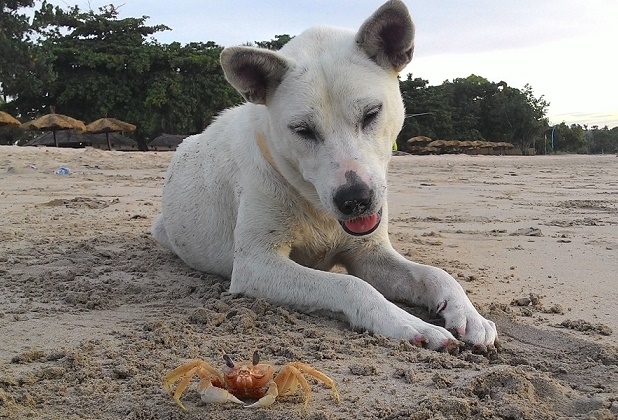
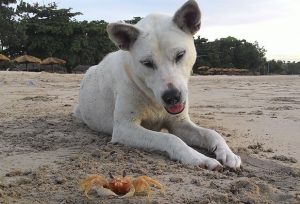
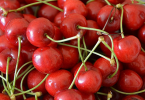
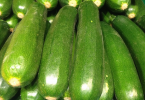
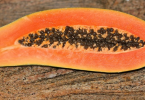
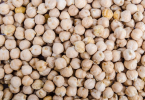

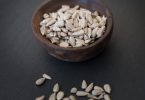
Crab stuck in my dog then surgery don’t put crab for dog
Don’t put crab for dog It will stuck